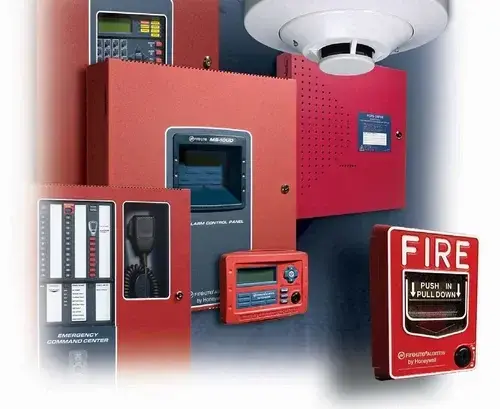How to Start an Alarm Installation Contractor Business
- Nate Jones, CPCU, ARM, CLCS, AU

- Aug 18, 2025
- 3 min read
Updated: Aug 19, 2025
Starting an alarm installation contractor business can be a profitable venture in today’s security-conscious world. Whether you're installing fire alarms, security systems, or surveillance cameras, the demand for reliable alarm contractors continues to grow. But before you begin wiring up homes and businesses, it’s important to understand the steps to launch your business successfully—and protect it with the right insurance coverage.

At Wexford Insurance, we specialize in helping alarm installation contractors get the insurance they need to operate safely and confidently. Here’s a step-by-step guide to help you start your alarm installation business the right way.
Step 1: Choose Your Niche and Services
Alarm installation contractors can specialize in:
Security alarm systems
Fire alarm systems
Surveillance and CCTV systems
Smart home integrations
Commercial and industrial alarm systems
Choosing a niche helps you target your marketing and build expertise. You can also explore low-voltage contracting, which often overlaps with alarm installation.
🔗 National Electrical Contractors Association (NECA) – Learn more about low-voltage contracting standards.
Step 2: Get Licensed and Certified
Licensing requirements vary by state and locality. You may need:
A contractor’s license
Low-voltage or electrical certification
Background checks or fingerprinting (especially for security work)
🔗 Contractor License Lookup by State – Find your state’s licensing requirements.
Step 3: Create a Business Plan
A solid business plan should include:
Startup costs
Target market
Marketing strategy
Pricing structure
Equipment and vehicle needs
Insurance requirements
Step 4: Purchase Equipment and Tools
Essential equipment includes:
Power drills and hand tools
Wire strippers and testers
Ladders and safety gear
Alarm panels and sensors
Surveillance cameras and DVRs
You’ll also need a reliable work vehicle to transport tools and equipment.
🔗Security Sales & Integration – Industry news and product reviews.
Step 5: Get the Right Insurance Coverage
Insurance is critical for protecting your business from liability, property damage, and employee injuries. At Wexford Insurance, we offer tailored coverage for alarm installation contractors, including:
General Liability Insurance – Covers third-party injuries and property damage.
Commercial Auto Insurance – Protects your work vehicles and drivers.
Commercial Property Insurance – Covers your office, warehouse, or storage space.
Equipment Insurance – Protects your tools and alarm system components.
Workers Compensation Insurance – Required if you have employees; covers workplace injuries.
Step 6: Market Your Business
Build a strong online presence with:
A professional website
Social media pages
Local SEO and paid ads
You can also network with property managers, builders, and security consultants to generate referrals.
Marketing Support for Alarm Installation Pros
Promoting your alarm installation business takes time and consistency. Contractor Back Office helps you stay on top of your marketing and client communications by managing your phone calls, website, CRM, and social media management—so you can focus on installations and growing your business.
Step 7: Stay Compliant and Up-to-Date
Stay informed about changes in building codes, fire safety regulations, and technology trends. Continuing education and certifications can help you stay competitive.
Final Thoughts
Starting an alarm installation contractor business requires planning, licensing, equipment, and insurance. With the right foundation, you can build a successful business that protects homes and businesses while growing your reputation in the security industry.
At Wexford Insurance, we’re here to help you every step of the way. Contact us today to get a quote for your alarm contractor insurance and start your business with confidence.





